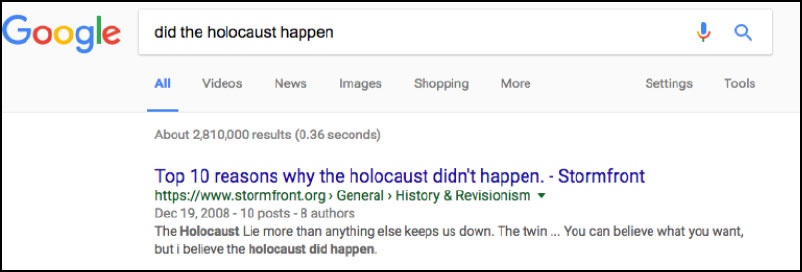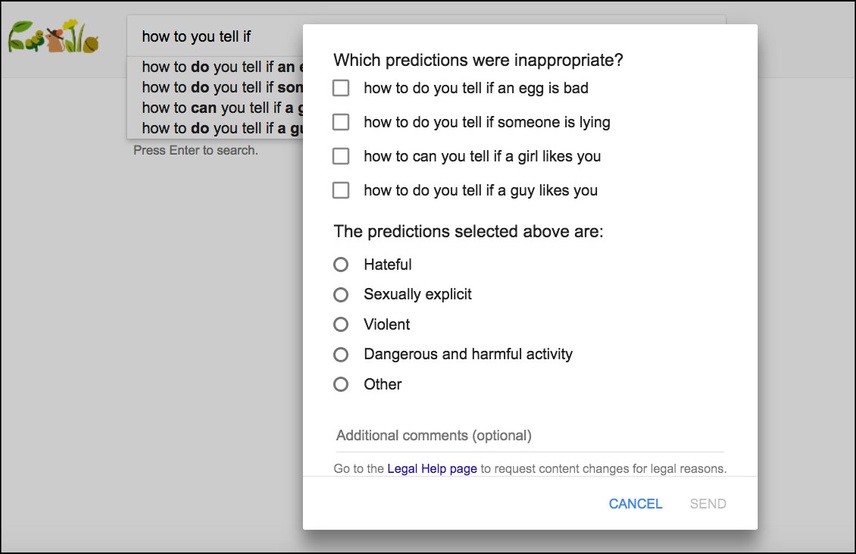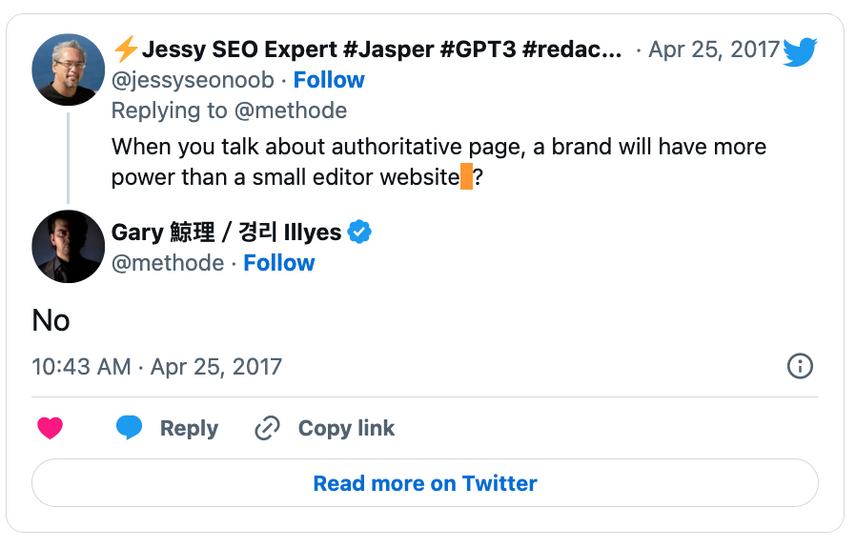What Google’s ‘Project Owl’ Means For Search Marketers
- Industry News
- By Patrick Reinhart
- 4 minutes read
Google's "Project Owl" was an attempt to improve search quality and eliminate flagrant and offensive search suggestions. Here's what it means for search.
What is Project Owl?
In April of 2017, Google announced a major update designed to fight a slew of search quality problems. Code-named "Project Owl," the initiative aims to eliminate fake news in search results and halt offensive search suggestions and incorrect featured snippets.
Let's take a deeper look at what Project Owl entails, and the changes searchers will see because of it:
The problem: Bad search results
Google's been plagued in recent months by a firestorm of negative media attention surrounding some low-quality search results. The problem has been three-fold:
1. Fake news and shocking/outlandish content in search results
It doesn't happen often, but Google has returned false, biased and/or conspiracy-laden content in its search results. Fortune reported on one such case from late 2016, in which a search about the Holocaust returned a neo-Nazi site in the top results.

2. Offensive autocomplete search suggestions
Autocomplete search suggestions are based on previous user searches, and sometimes derogatory terms show up. People have complained about such search suggestions as "are women evil” as well as other terms that promote violence.
3. Incorrect information in featured snippet boxes
This is when Google serves up a direct answer to a query in an answer box at the top of the SERP—only in this case, the answer either contains bad information or is flat-out wrong. This Search Engine Land post has some good examples of faulty answer box answers.
The solution: Project Owl
A three-fold problem requires a three-fold solution. With Project Owl, Google aims to provide:
1. A new emphasis on authoritative content to improve search quality
Google says it will now give greater weight to "more authoritative" content, especially for obscure and infrequent searches. This means that it will be harder for low-quality/fake news sites to rank, regardless of how popular they might be, and more weight will be given to the sites with a proven track record of reliability.
In addition, search quality "raters" have been hired by Google to flag content that's hateful or outlandish, which should improve the quality of search results.
2. A new feedback form for search suggestions
With the launch of Project Owl, when a user begins typing a search query and the autocomplete suggestions pop up, now a "Report inappropriate predictions” link appears below the search box.
When a user clicks that link, a form pops up in which they can pick which predictions they object to and why—because they find them hateful, sexually explicit, violent, dangerous/harmful or "other." Google said it will use this feedback to tweak the algorithm.

Also as a part of Project Owl, Google published a formal policy about why search suggestions might be removed.
3. A new feedback form for featured snippet answers
Google also revamped the feedback form that's found under the featured snippet answer box. Now, if a user has a problem with the answer provided, they can click "Feedback" and tell Google why they object to the answer—that they simply "don’t like" it, or that they find it hateful/racist/offensive, vulgar/sexually explicit, harmful/dangerous/violent, or misleading/inaccurate.
Again, Google said it will use the feedback to tweak the algorithm.
Why Is Project Owl Important To Marketers?
As search marketers we are constantly adapting to the ebbs and flows of our changing environment, and this is no different. While this isn’t a traditional update that Google has employed, it has changed the way that folks can interact with it, which ultimately, affects your clients.
While Google may put increased emphasis on site authority to weed out poor quality or offensive content, they have been clear that this will not disadvantageously affect emerging sites or smaller brands.

You may need to concoct new strategies around monitoring terms and responses that are relevant to your clients, and a plan for when something comes up wrong and you need to provide feedback.
On the other side of the coin, you will have to monitor what competitors are doing to see if they are leaving feedback for results that favor your clients' over theirs.







